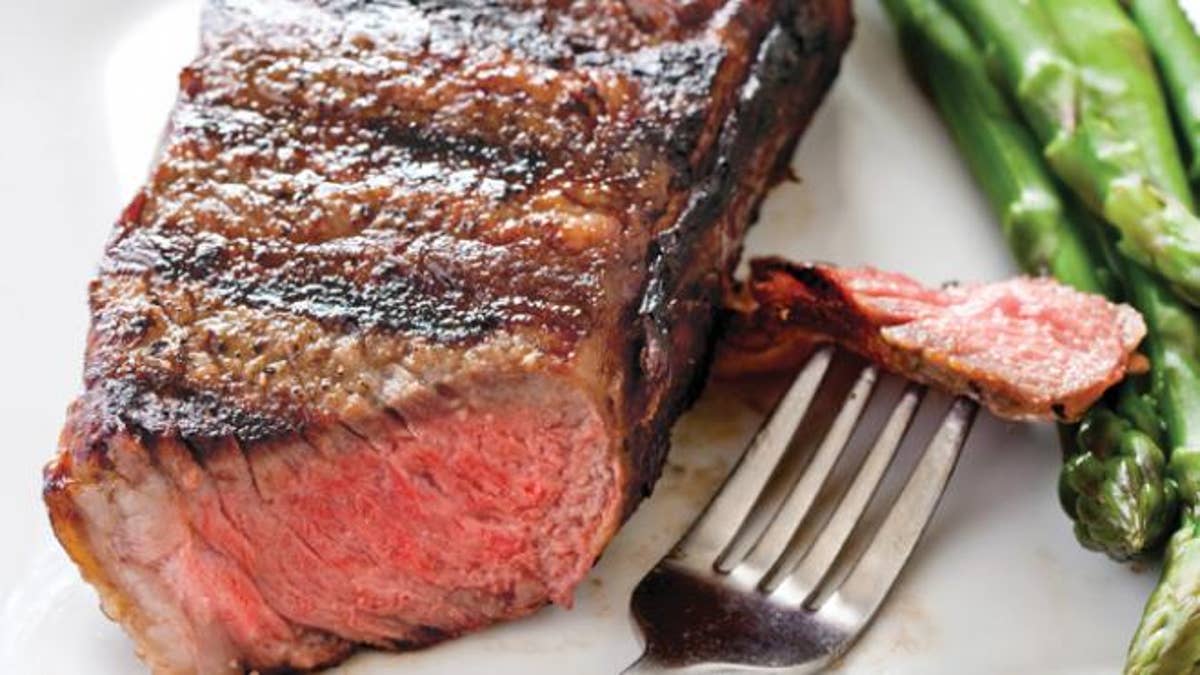
Overweight and obese people with type 2 diabetes may feel better after a meal if they start it off with vegetables or proteins and end with the carbs, suggests a new study of 11 people.
Finishing the broccoli and chicken before tucking into bread and fruit juice was tied to a lower rise in blood sugar levels over the next two hours, compared to eating the same foods in the opposite order, researchers report in Diabetes Care.
"When we saw the result, we were really encouraged that this is something that could potentially benefit people," said Dr. Louis Aronne, the study's senior author from Weill Cornell Medical College in New York.
Approximately 29 million Americans - about 9 percent of the U.S. population - have diabetes, according to the Centers for Disease Control and Prevention. About 30 percent of those people are undiagnosed.
Type 2 is the most common form of diabetes and is often linked to obesity. In type 2 diabetes, the body's cells are resistant to the hormone insulin, or the body doesn't make enough of it. Insulin helps the body's cells use glucose in the blood for fuel.
Drinking whey protein shakes before meals has been linked to lower blood sugar levels after eating, but little was known about the influence of foods, and the order in which they're consumed, on blood sugar levels following a meal, the researchers write.
Blood sugar normally rises after eating, but for people with diabetes it can spike dangerously. Diabetics are often told to avoid foods high on the glycemic index - a measure of how rapidly a food gets converted to glucose in the blood - like white breads and sugary drinks.
The new research suggests that people may benefit from timing their consumption of carbohydrates during a meal instead of simply avoiding certain foods.
The researchers recruited 11 people with type 2 diabetes who were all overweight or obese. They were also taking a drug called metformin, which helps to control blood sugar.
The participants all fasted for 12 hours overnight before consuming a 628 calorie meal with protein, carbohydrates and fat.
One week, they consumed the carbohydrates (ciabatta bread and orange juice) first. Then they ate skinless grilled chicken, a small salad and buttered steamed broccoli 15 minutes later.
The participants ate the same meal a week later, but the order of the foods was reversed, with the salad and broccoli first, then the chicken, then the carbs.
The researchers also took blood samples before the meals and 30, 60 and 120 minutes afterward.
When the participants ate vegetables and proteins first, their blood sugar levels were about 29 percent lower 30 minutes after starting the meal, compared to when they ate the carbs first. At 60 and 120 minutes after participants began eating, blood sugar levels were 37 percent and 17 percent lower, respectively, compared to when the carbs came first.
"It’s possible what this is doing is delaying or tempering how fast the carbohydrates get absorbed," said Dr. Sethu Reddy, chief of the Adult Diabetes Section at the Joslin Diabetes Center in Boston.
"I think certainly it's an interesting study that says eating a good salad before your meal may help with glucose absorption," said Reddy, who was not involved with the new study.
The new study may not be the full story, Reddy told Reuters Health. For example, he said, it will be important to see what happens beyond two hours, and what's happening to the carbohydrates.
The researchers also say more studies with longer follow-up times are needed.
"We’re doing the next study," Aronne told Reuters Health. "We’re doing a longer study and we’re looking at some of the other key hormones."
As of now, he said, the theory is that the absorption of the carbohydrates is somehow slowed down by eating vegetables, which are low on the glycemic index.
"This shows that the highly desired foods can be a part of a diet if we sneak them in there," Aronne said.
